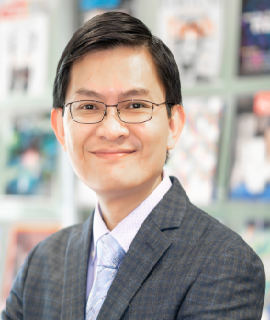
H-Index: 51
National Yang Ming Chiao Tung University
Taiwan
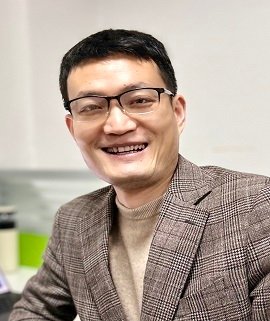
Xiong'an Institute of Innovation
Chinese Academy of Science
China
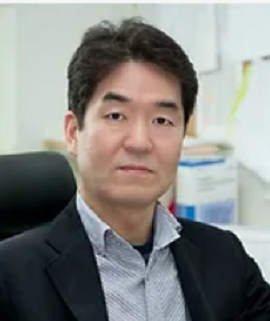
Gwangju Institute of Science and Technology
South Korea
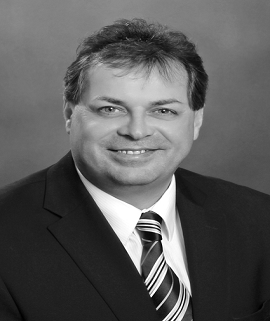
Kansas State University
USA
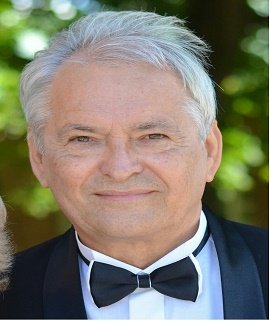
H-Index: 69
Technical University of Moldova
Moldova
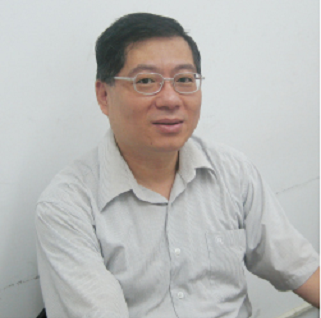
Lunghwa University of Science and Technology
Taiwan

National Polytechnic Institute
Mexico
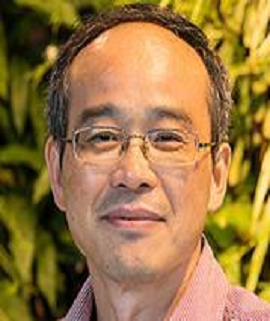
H-Index: 96
University of Technology Sydney
Australia

CEO, Managing Director
Halocell Europe
Italy
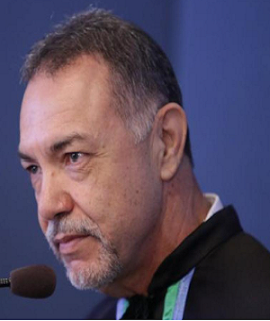
H-Index: 58
Catholic University of Brasilia
Brazil
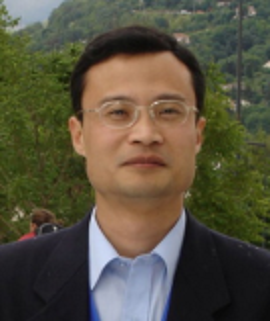
East China University of Technology
China
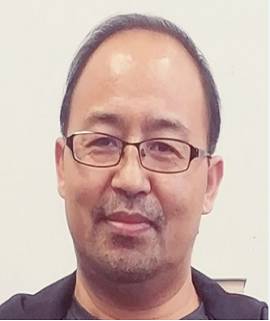
H-Index: 41
Fudan University, Shanghai
China
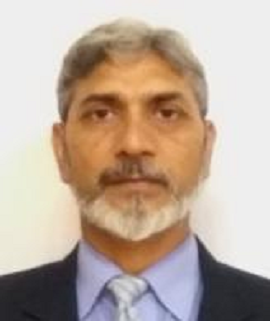
H-Index: 43
Defence Institute of Advanced Technology
India
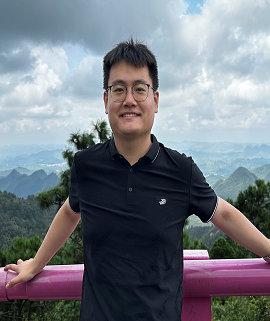
Xidian University
China
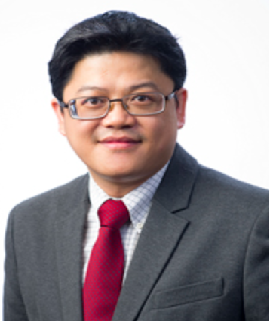
H-Index: 32
City University of Hong Kong
Hong Kong
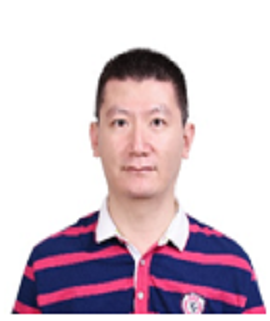
Xi'an Jiaotong University
China
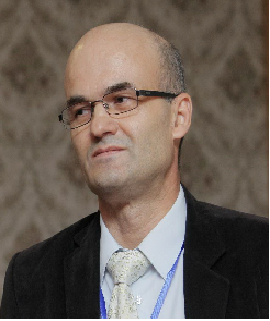
Alexandru Ioan Cuza University
Romania
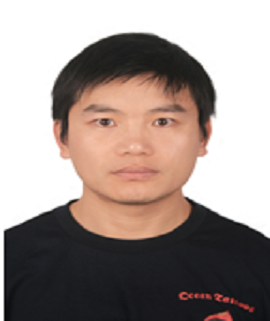
Northeast Normal University
China
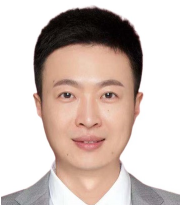
Xi'an Jiaotong University
China
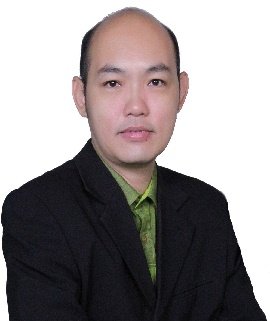
INTI International University
Malaysia
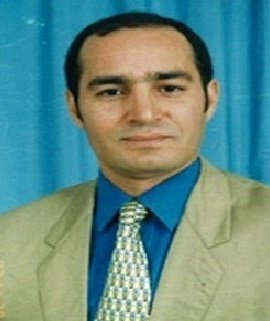
University of Haute Alsace
France

Ujjain Engineering College
India

Kharkiv Polytechnic Institute
Ukraine
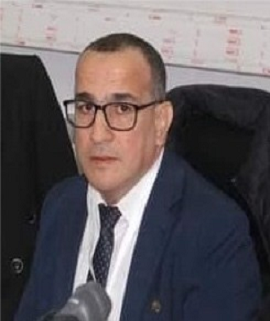
Center for Research in Semiconductor Technology
Algeria

H-Index: 116
Excecutive Director at Bimberg Chinese-German Center for Green Photonics
Founding Director at Center of Nanophotonics, TU Berlin
Germany
Dieter H. Bimberg is the Founding Director of the Center of Nanophotonics at TU Berlin. He was chairman of the Department of Solid-State Physics at TUB from 1991 to 2012 and was holding the chair of Applied Physics until 2015. He is presently Executive Director of the “Bimberg Center for Green Photonics” of the Chinese Academy of Sciences at CIOMP, Changchun. His research interests include the growth and physics of nanostructures and nanophotonic devices, ultrahigh speed and energy efficient photonic devices for information systems, single/entangled photon emitters for quantum cryptography and ultimate nanoflash memories based on quantum dots. He has authored more than 1500 papers, 60 patents, and 7 books resulting in more than 56,000 citations worldwide and a Hirsch factor of 106 (@ google scholar). His honors include the Russian State Prize in Science and Technology 2001, his election to the German Academy of Sciences Leopoldina in 2004, to the Russian Academy of Sciences in 2011, to the American Academy of Engineering in 2014, to the American Academy of Inventors 2016, He was elected as Fellow of the American Physical Society, IEEE and Chinese Optical Society in 2004, 2010 and 2022, respectively. He received the Max-Born-Award and Medal 2006, awarded jointly by IoP and DPG, the William Streifer Award of the Photonics Society of IEEE in 2010, the UNESCO Nanoscience Award and Medal 2012, Heinrich-Welker-Award 2015 and Nick Holonyak jr. Award of OSA in 2018. In 2019 he received the IEEE Nishizaza Award and Medal. The University of Lancaster (UK) and the St. Petersburg Scientific University of the Russian Academy of Sciences bestowed honorary doctorates to him.

Yuri G Gurevich obtained the degree of Doctor (Ph.D) in Solid State Physics, in 1968, at the Institute of Semiconductors of the Academy of Sciences of the Soviet Union in Leningrad. In 1980 Yuri G Gurevich obtained the Doctor of Science qualification – the highest academic degree in the Soviet system – in Physics of Semiconductors and Dielectrics at the Institute of Radiotechnical and Electronics of the Academy of Sciences of the Soviet Union in Moscow. In 1987 he obtained the academic title of Professor in Theoretical and Experimental Physics from the Ministry of Higher Education of the Soviet Union in Moscow, Russia. In the Soviet Union, from 1965 to 1993, he worked at the Institute of Radiophysics and Electronics of the Ukrainian Academy of Sciences in Kharkov and at the Kharkov Polytechnic University (1981-1993). In 1993, at the invitation of the Conacyt Heritage Chair, he carried out a work stay in the Department of Physics of the Center for Research and Advanced Studies in Mexico. In 2014, by the National System of Researchers (SNI) the appointment of National Researcher Emeritus. Yuri G Gurevich have specialized in non-linear transport phenomena in semiconductor structures with out-of-equilibrium carriers. Yuri G Gurevich’s scientific contribution includes: 8 specialized books, 18 review articles and 14 book chapters. His theories have been published in journals with the greatest impact worldwide such as: Physical Report, Physical Review Letters, Physical Review B, Applied Physics Letters, Journal of Applied Physics.
John Zhou holds a PhD in environmental technology at UMIST in 1991 and had a research career in the UK and Australia. John Zhou's research expertise covers environmental sampling, trace analysis, remote sensing of vehicle emissions, advanced wastewater treatment using chemical oxidation, reduction by nano zero-valent iron, adsorption, biodegradation and photocatalysis, and energy recovery from waste.
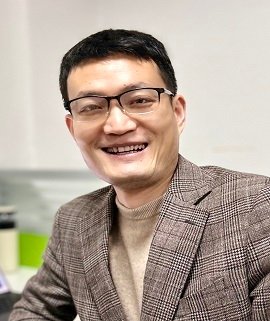
Jie-Tao Liu received the B.S. degree in Applied Physics from Northwestern Polytechnical University (NPU), Xi’an, China, in 2009. He received his Ph.D. degree from the Institute of Semiconductors, Chinese Academy of Science (ISCAS) focusing on nanophotonics and nanodevices in 2014. He worked as a lecturer and assistant Professor in the School of Physics and Optoelectronics Engineering, in Xidian University, from 2014 to 2022. In 2017, he was promoted as an associate professor in Xidian University. In 2018-2019, as a visiting scholar, he had a one-year cooperation and work with Prof. Ioannis at Pi-Lab at Department of EEE in UCL (London) for metasurface and plasmonics. He was promoted in 2022 as a full professor and researcher in Xiong’an Institute of Innovation (XII), Chinese Academy of Science. His research interests have been focused on optoelectronic information science and engineering. His current research interests are related to photonic integrated chips and optoelectronic devices. He has published over 50 papers and have been authorized more than 40 invention patents.
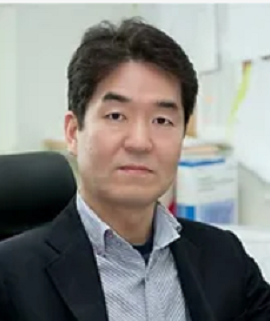
Will Update Soon..
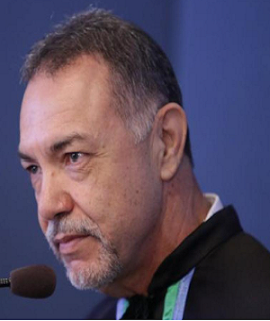
Paulo C. DE MORAIS, PhD, was full Professor of Physics at the University of Brasilia (UnB) Brazil up to 2013, Appointed as UnB's Emeritus Professor (2014), Appointed as Guest Professor of Huazhong University of Science and Technology China (2011), Visiting Professor at Huazhong University of Science and Technology (HUST) China (2012-2015), Appointed as Distinguished Professor at Anhui University (AHU) China (2016-2019), Appointed as Full Professor at Catholic University of Brasilia (UCB) Brazil (2018), Appointed as CNPq-1A Research Fellowship since 2010, 2007 Master Research Prize from UnB, 2008-member of the European ERA NET Nanoscience Committee, Member of the IEEE-Magnetic Society Technical Committee, Senior Member of the IEEE Society, 2012 China's 1000 Foreign Expert Recipient, and 2012 Academic Excellence Award from Brazilian Professor's Union. He held two-years (1987-1988) post-doc position with Bell Communications Research New Jersey, USA and received his Doctoral degree in Solid State Physics (1986) from the Federal University of Minas Gerais Brazil. He graduated in both Chemistry (1976) and Physics (1977) at UnB.ProfessorMorais is member of the Brazilian Physical Society and the Institute of Electrical and Electronics Engineers IEEE. He has served as referee for more than 50 technical journals, takes part of the Editorial Board of more than 15 technical journals and has conducted research on nanomaterials for over 40 years. He has delivered more than 150 Invited Talks all over the World. He is known for his research in preparation, characterization and applications of nanosized materials (magnetic fluid, magnetoliposome, magnetic nanoemulsion, magnetic nanocapsule, magnetic nanofilm, magnetic nanocomposite, nanosized semiconductors, polymeric dots, carbon dots, and graphene quantum dots). With nearly 500 published papers in peer reviewed journals, more than12,000 citations and 15 patents, he has appeared in recent World ranking of top 1% scientists, such as 2020-Stanford, 2022-Research.com, and 2023-AD Scientific Index.
Chen Hsu received his Ph.D. in Materials Science from Oxford University in 1999. It is common for him to be a member of the editor-in-chief and editorial board. He is currently a professor in the Department of Semiconductor Engineering at Lungwha University of Science and Technology. Professor Chen Hsu and his colleagues have done many interesting research works in new semiconductors, hot- pressed superalloys, light-modulated nanoporous materials, superparamagnetics, in vitro biosensors, nanomedicine, metamaterial devices from microwaves and terahertz to optical frequencies etc... Materials and biomedicine are the focus of his research. At the meantime, Prof Chen Hsu has been now promoting next-generation microservers and developing software in various areas such as the original data generation process.
SJ Xu received his PhD degree in Department of Electronic Engineering from Xi’an Jiaotong University in 1993. He is currently a Changjiang Chair professor in Department of Optical Science and Engineering, School of Information Science and Technology, Fudan University. Prior to joining Fudan University, SJ Xu was a tenured professor in Department of Physics, University of Hong Kong (HKU). In the past double decades, he has fortunately obtained some important findings and developed theoretical models with significant impact (>180 particles with >8600 citations) in optics and optoelectronic processes of wide bandgap semiconductors.
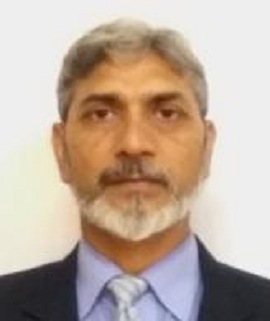
Will Update Soon..
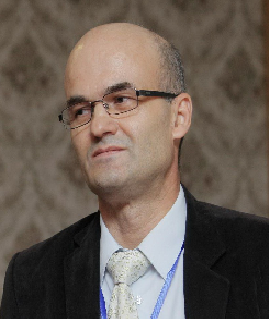
Dr. Mangalagiu is a professor of organic and medicinal chemistry and Vice-Rector with research at Alexandru Ioan Cuza University of Iasi, Romania. Previously, prof. Mangalagiu served as Dean, Vice-Dean, Head of Organic Chemistry Department, etc. at Faculty of Chemistry. He has nearly 30 years of experience in the research, focused in the area of Heterocycles Compounds. He has over 200 papers, 15 patents, 6 international chapter books, a Hirsh index of 30, etc. He was Visiting Professor and/or invited speaker to prestigious foreign universities (Ludwig Maximilianus University Munchen, Technische Universität Braunschweig, University of Florence, Universite D’Angers, University of Viena), awarded with numerous prizes and honours: DAAD and NATO award, Ioan Tanasescu Award for Excellence in Organic Chemistry (American Chemical Society), Costin D. Nenitescu Medal (Romanian Society of Chemistry), Alexandru Ioan Cuza University of Iasi Award in Research, Grand Prize Euroinvent (Euroinvent, Romania), Special Award of Croatian Association of Inventors, etc.

Fazhi Song is currently an Associate Professor at Harbin Institute of Technology (HIT), China. He received the Ph.D. degree in Control Science and Engineering from Harbin Institute of Technology, Harbin, China, in 2019. From March 2017 to March 2018, he was a joint- training Ph.D. student with National University of Singapore, Singapore. His research interests include system identification and motion control with applications to wafer scanners in lithography systems. He has authored and co-authored over 30 peer-reviewed academic papers published on high-level international journals such as IEEE TIE, IEEE TIM, IEEE TNNLS, and IEEE TMECH, been granted 25 invention patents, authored one academic monograph and developed three types of measurement and control software in this filed. He has led more than 10 research projects, including those funded by the National Natural Science Foundation of China and the Heilongjiang Province Excellent Youth Fund. He serves as a Youth Editorial Board Member of some journals, such as Instrumentation and China Measurement and Test. He is a member of IEEE Industrial Electronics Society, Chinese Association of Automation and China Instrument and Control Society. He has been honored with titles such as Heilongjiang Province Outstanding Youth and Heilongjiang Province High-level Talent. He has received the First Prize of the China Instrument and Control Society Technology Invention Award.
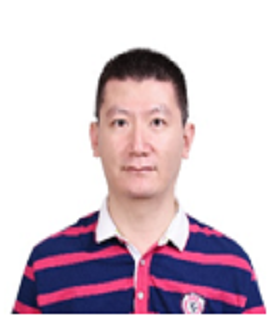
Dr. Wenbo Peng is now an Associate Professor at School of Microelectronics, Xi’an Jiaotong University. He received his PhD degree in major of Electronic Science and Technology at 2016 and bachelor degree in major of Microelectronics at 2010, from Xi’an Jiaotong University. He has been a visiting scholar in School of Materials Science and Engineering, Georgia Institute of Technology from Aug 2014 to Jul 2016, working on the research fields of piezotronics and piezo-phototronics under the supervision of Prof. Zhong Lin Wang. His research interests mainly focus on advanced low dimensional piezoelectric semiconductor materials, devices and physics, and novel intelligent sensing integrated chips. He has received several fundings from NSFC, Shaanxi Province and companies. He has authored and co-authored over 50 peer-reviewed journal publications in related research fields, parts of which are published on high quality international journals, including Advanced Materials, Advanced Functional Materials, Advanced Energy Materials, Nano Energy, ACS Nano, Nano Letters, etc. His publications have been cited over 2400 times, as documented at Google Scholar (h-index: 26). He has given several Keynote/Distinguished/Invited Talks in renowned international conferences. He is the Fellow of International Association of Advanced Materials.
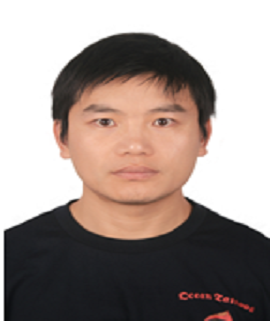
Dr. Bingsheng Li is currently a professor in Northeast Normal University of China. He got his PhD degree from University of Chinese Academy of Sciences in 2002. From 2002 to 2012, he carried out research on MBE and PLD in National Institute of Advanced Industrial Science and Technology of Japan, The City College of the City University of New York of USA and University of Tokyo of Japan. In 2012, he joined Harbin Institute of Technology as a full professor. In 2019, he moved to Northeast Normal University where he focuses on the epitaxial growth of oxide and nitride thin films for photoelectronic application by MOCVD.

Will update soon..

Lebedev V.V. graduated from the National Technical University "Kharkiv Polytechnic Institute" in 2004 with a degree in "Chemical technology of macromolecular compounds", has a qualification of chemical engineer-researcher. He is a candidate of technical sciences (2010), docent from 2019 yaer . He defended his dissertation on specialty 05.17.06 - technology of polymer and composite materials. He has many years of experience in scientific and pedagogical and organizational work at the National Technical University "Kharkiv Polytechnic Institute" (Associate Professor). The general pedagogical experience of work in higher educational institutions makes 13 years. He has been working at the Department of Technology of Plastics and Biologically Active Polymers of the National Technical University "Kharkiv Polytechnic Institute" (NTU "KhPI") since November 2007. Lecture load Lebedeva VV is 220 hours per year, teaches in the state language of the profile disciplines of the department in specialty 161 "Chemical Technology and Engineering": "Polymer Materials Science", "Modern Technologies in the Industry", "Elastomer Production Technology" and "Materials and Substances for Modern Technology". Systematically works to improve the conduct of lectures, practical classes, embodies the latest educational technologies (project method, business games, interactive and media technologies), works on the creation of distance learning courses, professionally implements a professional approach to graduate work in accordance with modern requirements, based on relevance and practical value. Lebedev V.V. has developed a sufficient number of educational and methodological sources for the profile disciplines of the Department of Technology of Plastics and Biologically Active Polymers, constantly pays attention to the development and updating of modern methodological and educational literature. Lebedev VV is a co-author of 3 guidelines for laboratory work, which significantly improved the level of work of students and a co-author of the textbook, which is actively used in the educational process of the department and independent work of students on term papers and dissertations. In 2019 he received a certificate in accordance with the European Recommendation on Language Education English, level B2, certificate №UA 1250 dated 04.09.2019: English School of Tomorrow, Kharkiv, Ukraine. Lebedev V.V. is one of the promising teachers of the department. He systematically works on the development and updating of educational and working curricula in the disciplines he teaches. Every year he takes an active part in international scientific and technical conferences and scientific and methodological seminars of the department. Lebedev V.V. conducts vocational guidance among students. In 2019-2020 he was an active participant and mentor of STEMcamp School of NTU "KhPI". Lebedev V.V. actively engaged in scientific activities. Participates in research work of the Department of Technology of Plastics and Biologically Active Polymers. Lebedev V.V. is an executor of themes: 1 "Research and development of polymer composite materials based on thermoplastic and thermosetting binders and silicon-containing fillers". Agreement № 82652 dated 23.12.2016 TUBNYI ZAVOD LLC. 2. Executor of the theme: "Development and research of polymer composite materials for components and parts of agricultural machinery". Agreement № 82936 dated July 22, 2019, JSC ELVORTY. Lebedev V.V. for the last five years he took part in 9 international scientific and practical conferences. Participated in the international conference abroad: II International Interdisciplinary Scientific and Practical Conference "Modern society cooperation and partnership", Warsaw, Poland. Lebedev V.V. successfully cooperates with production firms and provides consultations under the contract: Reference № 82/290 dated 02.12.2019 VF Polymer LLC. Agreement № 82 / 290-2019). He has a certificate of participation in an international conference abroad: II International Interdisciplinary Scientific and Practical Conference "Modern society cooperation and partnership" July 2016, Warsaw, Poland. Has a certificate in accordance with the European Recommendation on Language Education English, level B2 ,. №UA 1250 certificate dated September 4, 2019: English School of Tomorrow, Kharkiv, Ukraine. Lebedev V.V. for 17 years he has been working at the Department of Plastics Technology and Biologically Active Polymers (until 2013, the Department of Plastics Technology) of the National Technical University "Kharkiv Polytechnic Institute", teaching experience - 13 years. He has 58 publications after the defense of his dissertation, including 40 publications in a periodical indexed by the SCOPUS scientometric database.
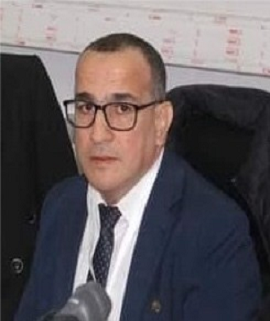
Dr. Nadjib DROUICHE has a rich academic background with a significant number of papers published in various fields, demonstrating a broad range of research interests. His work primarily revolves around the study of semi-conductor technology, energetics, and environmental science, with a particular focus on wastewater treatment and sustainable water management. His research contributions have been recognized and cited by numerous scholars, indicating the impact and relevance of his work in its respective fields. The author's research on the treatment of photovoltaic wastewater, fluoride removal, and the development of empirical models for wastewater treatment by electrocoagulation process are particularly noteworthy.He has been affiliated with several prestigious institutions, including the Centre de Recherche en Technologie des Semi-Conducteurs pour l’Energétique, Semi-Conductor Technology Research Center for Energetics (STRCE), National Agency for the Valorization of the Results of Research and of Technological Development, and the Algerian Parliament. These affiliations have provided the author with a diverse and enriching academic environment, fostering their research capabilities and allowing them to collaborate with other leading researchers in their fields.In addition to its work on wastewater treatment, he has also conducted research on other environmental issues, such as the sustainable management of water resources in Algeria and the adaptation to climate change. His work on the nexus approach to water-energy-food security is a testament to its commitment to addressing complex environmental challenges. The author's research portfolio reflects a dedication to advancing knowledge in environmental science and technology, contributing to the development of sustainable solutions for pressing global issues.
Choose Your Pricing That Fits You Best
Budapest, the capital of Hungary, is a captivating city that straddles the Danube River in Central Europe. It is renowned for its stunning architecture, rich history, and vibrant cultural scene. The city is divided into two parts, Buda and Pest, each with its unique character and attractions.